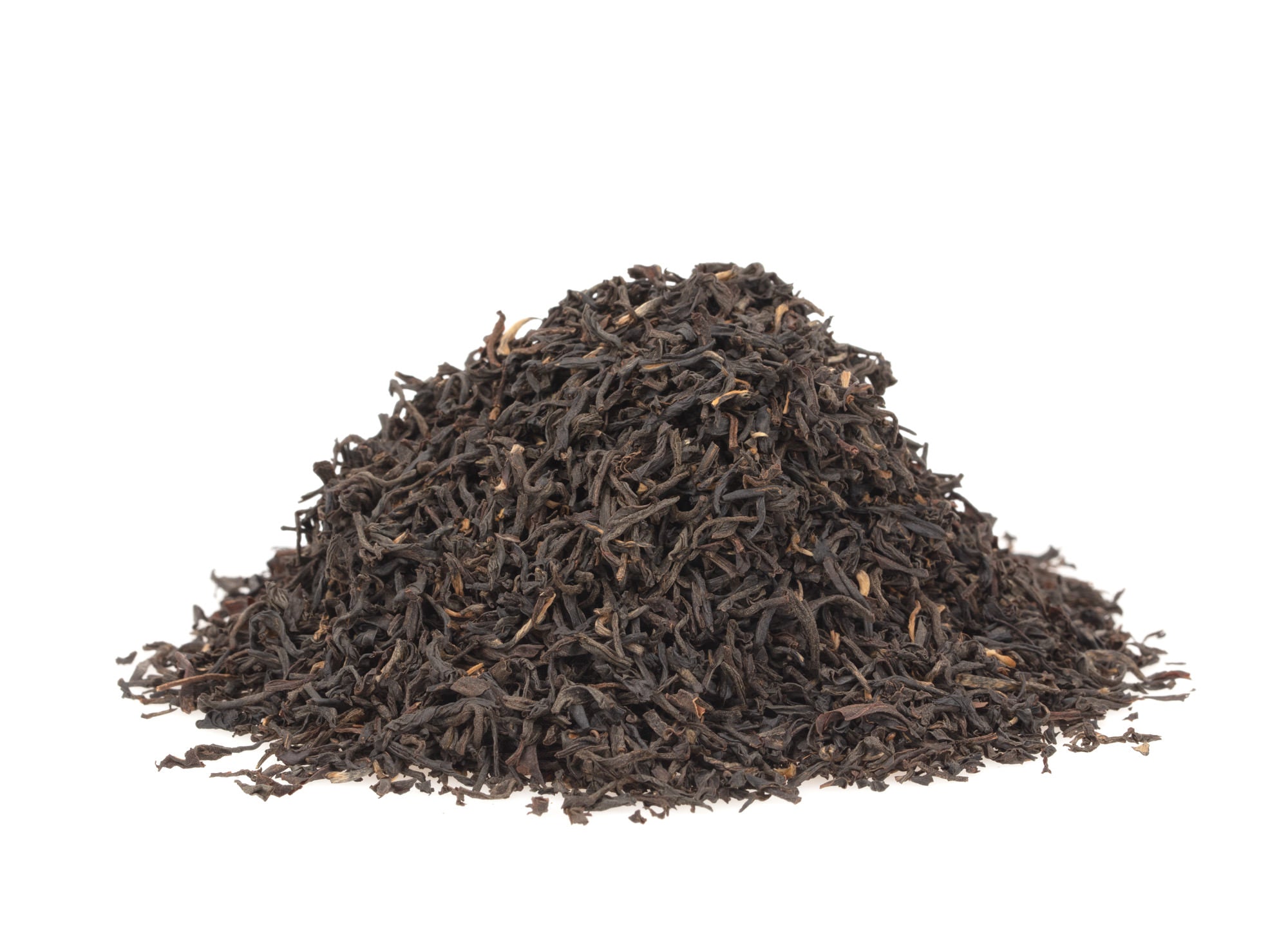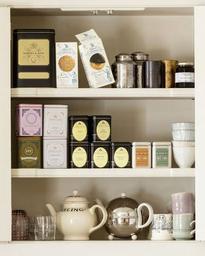While black teas are made from the same Camellia sinensis plant as all teas, the oxidation and processing are what distinguish black teas from the rest. Premium black teas are withered, rolled, oxidized, and fired in an oven, creating warm and toasty flavors. The longer oxidation process causes the tea leaves to develop dark brown and black colors. The flavors can range from malty or smoky to fruity and sweet. Black teas range from mellow teas from China to full-bodied teas from Assam, India. To learn more, check out Black Tea 101.
Not sure which black tea you'll prefer the most? Take our quiz to find out!
-

All Black Teas
Black teas are the ones we are most familiar and comfortable with–the teas we drank in our youth. We source only premium black teas from China and fine tea estates around the world that produce British Legacy Tea. You'll discover many black tea blends to choose from, some flavored and some not. Milk or sugar? That's your choice.
-

Flavored Black Teas
Our flavored teas are some of the most popular teas we carry at all times of the year. Everyone just loves the way that our smooth flavors meld with the background taste of tea.
-

Assam Black Teas
Assam is India's largest producer of tea, and the broad flood plains make for some of the most fertile tea estates in the world.
-

Black Tea Blends
Since 1983, we have worked to create fine tea blends, each with a story all its own.
-

Ceylon Black Teas
Ceylon teas can brew up light and bright like Lover's Leap, or substantial like Kenilworth. Ceylons make perfect afternoon teas and can handle milk and sugar.
-

Chinese Black Teas
Tea started in China, so China has a large variety of black teas. From the honey twinge of Golden Monkey and the Panyang teas to the chocolate of Keemuns and the turgid smokiness of Lapsang Souchong, these teas have a range and character all their own.
-

Darjeeling Black Teas
Light and brisk first flush teas focus your attention, while the darker teas of the later seasons are more mellow and often have wonderful flavors.
-

Decaf Teas
Relax and enjoy these decaf teas anytime. Though they've had their caffeine removed, their full flavor remains.
-

Pu-Erh Teas
Pu-Erh tea gets its name from Pu-Erh county in China’s Yunnan province, where it likely originated. This unique Chinese tea offers unusual qualities from fermentation, a process virtually no other tea endures.
-

Teas From Other Regions
Nowadays, tea comes from more than the "usual suspects." Please explore these teas from Africa, Indonesia, Southern India, and Vietnam.
Black Tea Origins
The most common perception of black tea as something that puckers our mouths, requiring milk and sugar to soften and soothe it, comes from black tea leaves grown in South Asia. Despite the ancient origins of white and green teas in China, black tea is a fairly new discovery, with beginnings dating back to only the 1700’s. The Chinese traditionally give a more mellow flavor, compared to the British Legacy Teas, with which the black tea flavor profile is most commonly associated. These varieties, including Darjeeling and Ceylon, are grown, oxidized, and rolled across India.
Please click on the diagram to view a larger version.

How To Brew Black Tea
- Preheat a teapot by pouring boiling water into it, raising the temperature of the teapot to at least 180°.
- Discard the water. In your teapot or filter, add 1 teaspoon of loose tea for each cup of tea you're brewing.
- Pour fresh boiling water over the tea or tea bag. This super-saturates the tea, allowing the perfect extraction of the flavor.
- Let the tea steep for a full 5 minutes.
- Pour the tea through a strainer into a cup.
Black Tea Brewing Temperature
Black teas taste best when brewed between 205° F and 212° F. Our wide offering of unique black tea blends results in different optimal temperatures, so it’s best to experiment to find the best temperature range. You can use electric water-dispensing pots to heat water to exact temperatures, or you can insert instant-read thermometers to check the water temperature prior to pouring over your black tea leaves.


Black Tea Brewing Time
As a general rule, black tea leaves should steep for at least 4 to 5 minutes. However, each batch and each drinker’s palate will dictate the proper brewing time. Observing both the tea liquor and the body will help you gauge whether you have brewed your tea for the correct amount of time.
If you’re looking for a stronger cup of tea, it’s best to increase the amount of tea used instead of increasing the brewing time.


